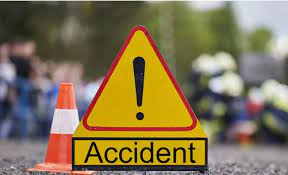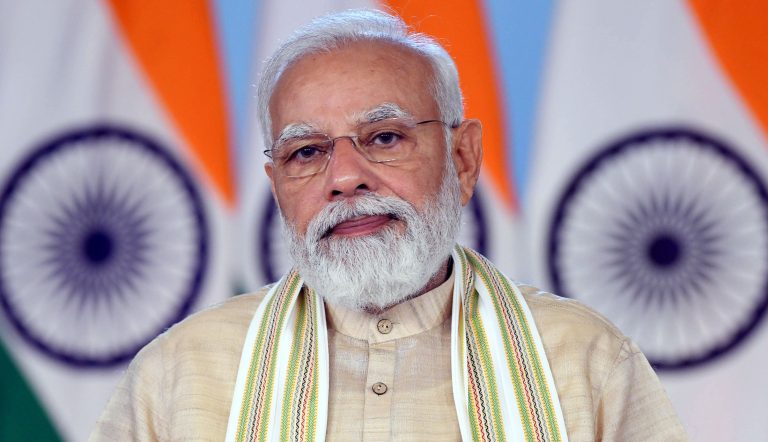SOURCE: AL JAZEERA NEWS
How US cancer patients are navigating new coronavirus anxiety
Randy Leese spent six hours in surgery this week to remove a liver tumour. While COVID-19 was at the back of the 64-year-old cancer patient’s mind, he said the procedure could not wait.
“It’s in the back of my mind, but I had to do something with this cancer,” Leese told Al Jazeera in a telephone interview from his hospital bed at Penn State Health Hershey Medical Centre in Hershey, Pennsylvania. “It wasn’t a good idea putting it off, let’s put it that way.”
Leese is among the thousands of cancer patients in the United States who are having to balance their need for treatment with the risk that they could contract the novel coronavirus, the highly contagious respiratory virus that causes the COVID-19 disease.
He said his surgery, which was related to colorectal cancer, had been scheduled for weeks.
It is still unclear when he will be able to go home, Leese said, but he is trying to regain his strength in the hospital. He speaks to his wife over the phone because she cannot come into the building to see him due to restrictions meant to stem the potential spread of COVID-19.
“It’s dangerous, I’m telling you. Some of these people are taking it very lightly. They shouldn’t be taking it lightly,” he said, about the coronavirus. “It’s a fear factor, I don’t care how you look at it … I’ve got to be double protective, I guess you could say.”
Risk factor
A joint mission led by the World Health Organization (WHO) and China in February found that people at highest risk of severe disease and death from COVID-19 were those over age 60 and people with underlying conditions such as cancer, diabetes, and cardiovascular disease.
After reviewing more than 55,000 confirmed COVID-19 cases in China, the mission reported that people with no other health conditions died at a rate of 1.4 percent while the death rate for people who had cancer was 7.6 percent – more than five times higher.
Dr Lecia Sequist, a medical oncologist at Massachusetts General Hospital and associate professor of medicine at Harvard Medical School, said the data is still sparse about just how much the risk of contracting COVID-19 increases in cancer patients. “But certainly, it’s clear that COVID-19 poses more risk for people with chronic diseases,” she told Al Jazeera.
Another study of 1,572 confirmed COVID-19 cases in China found that patients with cancer had “a higher risk of severe events” – defined as admittance to intensive care, need for “invasive ventilation” or death – than those without cancer.
More than 1.8 million new cancer cases are expected to be diagnosed in 2020, according to the American Cancer Society. Each year, an estimated 650,000 cancer patients in the US undergo chemotherapy.
The US Center for Disease Control and Protection (CDC) advises physicians to “reduce unnecessary healthcare visits” to prevent the spread of COVID-19 and reschedule elective surgeries, while oncology associations also recommend delaying cancer treatments and procedures wherever possible.
Some state governors have also signed executive orders urging medical providers to delay non-urgent surgeries, leaving difficult decisions for doctors who must weigh the risks with delaying or doing a treatment or procedure, as well as which cases take priority and need urgent care.
Sequist said she has delayed some cancer treatments by a month, at which point she will reassess her patients’ needs and the local COVID-19 risk. Patients’ long-term stability factors into the decision to delay treatment, among other things, she said.
Patients whose treatments cannot be delayed and need to come into the hospital must abide by new rules around social distancing. That can be an added stressor as cancer patients typically have support from friends and family during their treatments, such as chemotherapy sessions at the hospital.
“Patients can’t bring anybody with them to the clinic, so they’re by themselves and it’s much more difficult for friends and neighbours to come visit them at home,” said Sequist.
The COVID-19 pandemic has also raised ethical questions around the allocation of scarce resources, as physicians in other hard-hit countries have been forced to make literal life-and-death decisions around who will get treatment.
Sequist said some cancer patients are “worried about whether resources will be fairly allocated to them because of their diagnosis of cancer” – but she stressed that there would never be a blanket decision “that [they] are somehow less worthy or less important or less deserving” of treatment.
Telemedicine
Dr Niraj Gusani, a surgical oncologist and professor of surgery at Penn State College of Medicine, as well as Leese’s doctor, said: “The whole concept of social distancing goes to another level when you’re talking about a cancer patient [for whom] any exposure can be potentially deadly.”
Cancer patients undergoing treatment often have a reduced capacity to fight off viruses, leaving them particularly vulnerable to the coronavirus, which causes shortness of breath, coughing, and other respiratory issues. That means physicians need to determine which treatments cannot wait because “the risk of the disease is worse than the risk of getting COVID-19”, said Gusani.
He told Al Jazeera that about 80 percent of his patients’ outpatient services are being done remotely via telemedicine, from routine screenings and physicals to consultations and follow-ups after surgery. If patients can still get the information and advice they need without having to come into busy healthcare centres, they will.
Patients with lower-grade illnesses or less aggressive tumours can get chemotherapy in pill form, he added, and some can be treated in their local communities instead of travelling into larger cities where the risk of transmission for COVID-19 may be higher.
To date, most of Gusani’s cancer-related surgeries are going ahead as planned, but the doctor said he could see a day when all non-emergency operations will be postponed in order to preserve equipment and supplies needed for the COVID-19 response.
“Any time you do an operation, you use up a bunch of gloves and gowns and masks. You use a ventilator for the period of the operation and potentially for longer,” he said. “The minute you get into short supply … we have to stop, and we have to conserve.”
‘Protective cocoon’
Dr Amelia Langston is the director of the bone marrow and stem cell transplant programme at the Winship Cancer Institute of Emory University in Atlanta, Georgia.
She said most cancer patients were very good at social isolation even before COVID-19 arrived, but their family members are not necessarily as adept – and that is the biggest risk for spreading the highly contagious virus.
“Most of our patients, if they acquire COVID, they acquire it at home. My patients aren’t going to the grocery store; they’re not going to a restaurant or meeting people on the street and shaking hands. They’re getting it from a sick family member,” she told Al Jazeera.
Physicians in Atlanta are already seeing the second wave of the pandemic, Langston said, the family members of people who were previously diagnosed with COVID-19 are now coming into emergency rooms.
“I had a patient come in the other day and he said: ‘Do you think it’s a problem that my son works at Safeway [grocery store]?’ … I said, ‘Yes, there’s a problem’,” Langston said.
While she conceded that it can be difficult to stay away from a sick spouse or parent, abiding by strict social distancing rules is critical. “We want to create this cocoon,” she said. “I can’t use that word enough. We want to make this protective cocoon around our patients to help them to be safe.”

![A student who suffers from cancer wearing a mask at the campus of Harvard University in Cambridge, Massachusetts, US [Brian Snyder/Reuters] Harvard student mask](https://www.aljazeera.com/mritems/imagecache/mbdresplarge/mritems/Images/2020/3/11/4922ea23b3034833b7bd848fa02bc27c_19.jpg)





